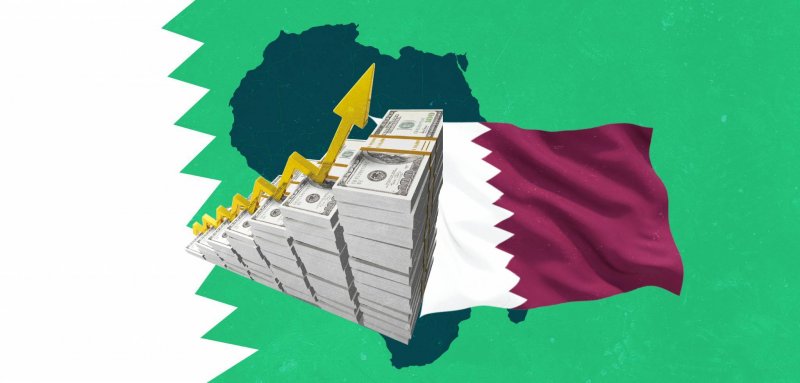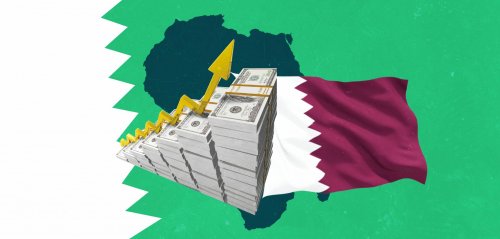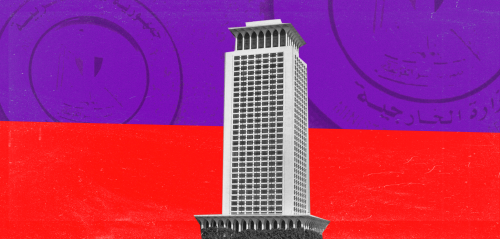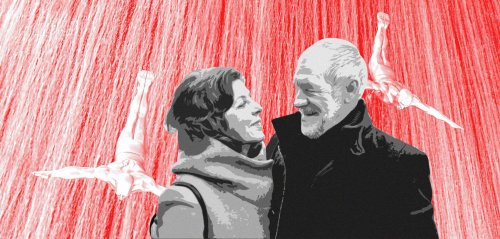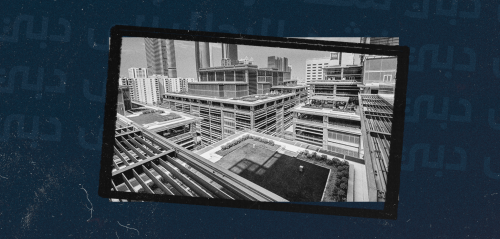Qatar has emerged as a new major player in Africa, allowing it to participate in political mediations in Chad, Mali, the Democratic Republic of Congo, Rwanda, Kenya, and Somalia.
According to French journalist Nicolas Beau on the French-speaking website MondAfrique, "Qatar is currently engaged in the largest diplomatic activity in Africa, and Doha has become the capital that everyone from the continent goes to."
He points out that Nigerian President Muhammadu Buhari, who is known to be close to the UAE and Saudi Arabia, has also visited Qatar, and adds, "Doha has learned from its loss in the recent UNESCO elections the necessity of expanding and creating new friendships for itself in Africa."
New alliances
Emir of Qatar Tamim bin Hamad has engaged in forging friendships with African leaders, making Rwandan President Paul Kagame the most important partner for Doha in Africa. This has helped the emirate secure the release of a prominent opposition figure there at the request of the United States.
Qatar's reputation grew in March when the United States announced the arrival of Rwandan opposition figure Paul Rusesabagina in Doha after Kagame had granted him amnesty, pardoning him from a 25-year prison sentence.
The blockade imposed by Arab countries on Qatar in 2017 forced it to search for other diplomatic, economic, and military partners.
His release came as a result of a deal mediated by Qatar, by Emir Tamim personally, between the governments of the United States and Rwanda. US President Joe Biden, Secretary of State Antony Blinken, and members of Congress thanked Qatar for the release of Rusesabagina, who is seen in the West as a hero who saved thousands from the genocide in Rwanda.
Speaking to Raseef22, Qatari analyst Saleh Gharib says, "Qatar has intervened in numerous complex mediations in the past, whether in Afghanistan, Lebanon, Syria, or other countries, but it has also turned towards Africa since the blockade imposed on it in 2017."
He further explains, "The aim of Qatar's engagement with African nations is to expand its network of relationships and interests, forming a political force that serves Qatar's interests and coordinates with it on the international stage."
Professor of International Politics at SOAS University in London, Phil Clark, said, "The blockade imposed by Arab countries on Qatar in 2017 forced it to seek diplomatic, economic, and military partners in the neighborhood. East Africa and the Horn of Africa provided important opportunities in this regard."
Mediation in human rights issues
Washington has not been on good terms with Rwanda due to its views on the Rwandan government's human rights record. Therefore, Qatar presented itself as a trusted actor, earning the confidence of both the United States and Rwanda to play a mediation role.
Qatar considered this issue as part of a broader diplomatic image, as was the case when it mediated peace talks in Darfur and Chad, and between the United States and the Afghan Taliban.
Gharib says, "The world has recognized Qatar's diplomatic and humanitarian efforts, and it has established a reliable image, especially after the evacuation of Americans from Afghanistan. Therefore, this role and reputation pave the way for Doha to be present in all global crises."
The Qatari analyst highlights that "Emir Tamim has personally traveled to Africa multiple times after the Gulf blockade on Doha, in order to support relations with his country and establish a new path with the continent and its leaders."
Just a few days before the release of Rusesabagina, the President of Rwanda was in Doha and met with the Emir of Qatar. CNN reported that the personal relationship between the two leaders helped secure the release of Rusesabagina in just three days.
Securing the release of Rusesabagina, a permanent resident of the United States, may not have been solely in the interest of the Biden administration. In fact, Doha benefits from it by enhancing its growing diplomatic influence in the region and beyond.
After 2017 and the Gulf blockade, Qatar began expanding its relationships and seeking new allies. It engaged in mediations, bringing countries closer together and opening doors for investments
Qatari foreign ministry spokesperson, Majed al-Ansari, stated that Qatar has become a "reliable international partner in resolving conflicts through peaceful and diplomatic means" and added, "Qatar has been able to play the role of a neutral mediator in various files and issues, making it a trusted international partner in resolving conflicts through peaceful and diplomatic approaches and bridging different perspectives."
Egyptian political analyst Salah Khalifa, specialized in African affairs, points out that "Qatar wants to shape a foreign policy that is known for its balance and positive presence in all arenas through its 'mediator image', which allows it to communicate and engage with all parties and create influence."
Broad political movements
Qatar has participated in diplomatic efforts in East Africa, including mediating between Ethiopia and Eritrea in 2018 and hosting peace talks between the Sudanese government and rebel groups in 2019.
In addition, Qatar helped calm the escalating tensions between Kenya and Somalia after Mogadishu severed diplomatic relations with Nairobi for six months in December 2021, publicly accusing it of interfering in internal affairs.
Both governments announced the reopening of their embassies and reached an agreement that includes a number of bilateral trade deals aimed at facilitating business under the auspices of Doha.
More recently, Qatar has engaged in shuttle diplomacy, convening a meeting between Rwandan President Paul Kagame and his Congolese counterpart, Felix Tshisekedi, to achieve rapprochement amid escalating tensions.
A delegation from Doha, led by Assistant Foreign Minister for Regional Affairs Mohammed bin Abdulaziz al-Khulaifi, traveled to the African continent last March and met with the presidents of Rwanda, Burundi, Kenya, and Angola to engage in mediation efforts.
Last month, the spokesperson for the Qatari Ministry of Foreign Affairs stated, "Qatar continues to support current mediation efforts, initiatives, and previous agreements signed between Rwanda and the Democratic Republic of the Congo."
Qatar mediated between Ethiopia and Eritrea in 2018 and hosted peace talks between the Sudanese government and rebel groups in 2019
However, Tshisekedi remains hesitant to visit Doha as he perceives Qatar to have sided with Rwanda in the border conflict between the two countries.
Economy in service of influence
Patrick Karamaja, a political science lecturer in the Democratic Republic of Congo, attributed Qatar's success in mediation to its massive investments in the country.
He stated in an interview with BBC radio, "Qatar has initiated investments in African countries as a form of reciprocation for their stance during the blockade and to diversify investment locations and explore new opportunities." He added that this is one of the state's tools to shape its external political influence.
In 2019, Qatar agreed to invest 60% in a $1.3 billion project to build the largest airport in East Africa, the new Rwanda Airport, which is expected to become a regional aviation hub located about 40 kilometers southeast of Kigali.
The following year, Qatar Airways acquired 49% of the state-owned RwandAir, and Karamaja stated, "Rwanda will resist American pressure, but it will not resist the request of a friend who invests hundreds of millions of dollars in it."
Qatar is now actively expanding its economic interests in East Africa, particularly in Rwanda, Ethiopia, Kenya, and Tanzania. It is also involved in oil and gas exploration in East Africa, with a particular focus on Mozambique, which has become an important destination for Qatar in the energy sector due to the discovery of significant natural gas reserves.
The small emirate has invested heavily in infrastructure projects in East Africa, including the construction of ports, airports, and new highways. It funded the expansion of the Mombasa port in Kenya and the construction of a new port in Tanzania.
Qatar has also invested in the energy sector in East Africa, with Qatar Energy signing several agreements with companies in Mozambique to develop natural gas reserves in the country. It has also invested in renewable energy projects in Kenya, such as the development of a wind farm in Marsabit County.
The Egyptian analyst points out that "one of the main reasons for Qatar's diplomatic influence is its current use of its wealth to build massive influence in Africa." He also attributes these latest Qatari investments to Doha's attempt to balance other investments made by several regional countries in Africa, whether Egypt, Gulf states, or Turkey.
Khalifa believes that the Qatari investments are the result of Qatar's positive political role in the continent, noting that the Gulf state is now benefiting economically by entering into various infrastructure projects.
Challenges ahead
During his tour of the Great Lakes countries, al-Khulaifi faced reservations from many regional leaders who are concerned about Qatar's mediation in the conflict in eastern Democratic Republic of Congo, according to the French website Intelligence Online.
Relations with Qatar include some risks, such as African countries getting involved in tensions between Qatar and its main regional competitors, such as the United Arab Emirates and Egypt. Can these countries balance their interests?
According to Phil Clark, "Relations with Qatar involve some risks, such as African countries getting involved in tensions between Qatar and its main regional competitors, such as the United Arab Emirates and Egypt."
He added, "These are powerful countries and several governments in East Africa have close ties with them. Therefore, these countries must maintain a delicate balance for East African nations."
Gharib mentions that "there are challenges for Qatar in Africa, specifically in terms of stability and security to ensure the preservation of its investments in a globally recognized volatile environment."
According to al-Khulaifi, the prominent challenges facing Qatar are that it plays a role in an arena that is witnessing escalating competition, intervention, and interference among international powers, especially Russia, China, the United States, and the European Union.
Kenyan Trade Minister Moses Kuria visited Doha in early March on an official mission. Journalists and activists noted his meeting with Belarusian businessmen Alexander Zingman and Oleg Vodchits, who are accused of being involved in arms deals in Africa and gold mines.
Raseef22 is a not for profit entity. Our focus is on quality journalism. Every contribution to the NasRaseef membership goes directly towards journalism production. We stand independent, not accepting corporate sponsorships, sponsored content or political funding.
Support our mission to keep Raseef22 available to all readers by clicking here!
Interested in writing with us? Check our pitch process here!
